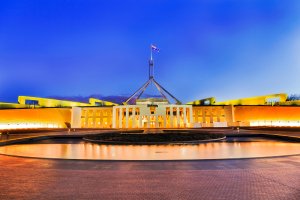In his forward to the book Religious Confession and Evidential Privilege in the 21st Century, published December 17, 2021, the Right Reverend Rowan Williams, 104th Archbishop of Canterbury (2002–12), points out that there are no easy answers to the balancing of the right to confession and the responsibility of churches to ensure the rights of children, the elderly and other vulnerable members of society, while at the same time, no community of faith can exist without a foundation of trust.

Reverend Williams makes the point that the “‘seal’ of confession is not—as some critics would argue—a form of malign secrecy but an assurance that all kinds of destructive and damaging behavior can be spoken out, named and acknowledged for what they are. The purpose of the confessional discipline is the restoration of the penitent to the life of the community—with all the healing and reparation that might imply. When a priest hearing a confession imposes a penance, the priest is not looking backwards at an offence that needs to be covered over but forwards to a perhaps painful process of truthfulness and repairing of relation with God and with the human community. It is precisely the assurance of confidentiality that is supposed to allow the penitent to be honest, to bring into the open what may seem too shameful, too humiliating or shocking, to speak of. Where grave offence and lasting injury are confessed, serious steps must be imposed and demanded.”
The views put forth in this peer-reviewed collection of articles by religious scholars and lawyers provides context and amplifies the importance of finding a balance or set point that protects both.
The text is edited by Mark Hill QC and Keith Thompson and is published by Shepherd Street Press, an imprint of Connor Court Publishing, and the School of Law, University of Notre Dame, Australia.
Its “three part division is geographical,” writes Thompson, “Australia, Europe and then the U.S. But the divisions are also thematic.”
Part I concerns Australia, where confidential religious communications are not protected by the constitution. A Royal Commission has recommended that laws on reporting sexual abuse of children “should exclude any existing excuse, protection or privilege in relation to religious confessions.”
Part II looks at “the diversity of European treatment of confidential religious communications.” In Italy, the Roman Catholic Church, though no longer the State Church of the country, continues to enjoy a place of privilege through previous concordats signed with the Vatican, while also benefiting from “Europe’s commitment to privacy as a secular value which operates to protect religious confidences in Italy.”
In Scandinavia, “not only have religious confidences been exempted from discovery in secular court proceedings in Norway and Sweden; until recently there have been secular laws in both countries which made any disclosure of religious confidences, a criminal offence… Recent amendments probably abrogate the priest’s duty of confidentiality in Norway but the position in Sweden is less clear although there is a duty to avoid future harm to others with a particular emphasis on protecting children.”
Part III “provides three quite different perspectives on confidential religious communications law in the U.S.”
Ukrainian Catholic priest Dr. Gregory Joseph Zubacz is a member of the Child Protection Review Board of his eparchy.
“The church has a vested interest in the spiritual health of all members of society. The state has an unquestionable interest in the protection of vulnerable members of society. This is the essence of the legislative policy conflict between church and state which is being played out in its attempts to make confessional communications another piece of forensic evidence,” he writes. “The rage concerning the scandals is justified. Justice needs to be done, and needs to be seen to be done.”
“But to take the seal of confession away from those who need it most could be like denying a life-saving drug to a person who needs it. It may very well be taking away their very last faint hope of the possibility of amending their lives, seeking treatment, turning themselves in to law enforcement, and ceasing horrific behaviour.”
“Confession is a much-needed spiritual therapy conducted by a doctor of the soul … which by its nature requires privacy.”
The chapter on the Orthodox tradition in America describes the pastoral confessional practice as “the means of reconciliation between human beings and God,” and thus “confessional secrecy must and will be maintained to enable those who commit sin to be healed and restored to the God who made them.”
The final chapter of the book is a discussion of the practice of the Scientology religion and how “it is or should be protected by the First Amendment and more specific state religious confession statutes.”
Scientology religious counseling, called auditing from the Latin word “audire”—to listen—is described, showing the differences and parallels between this practice and religious confession in other religions. But as with other faiths, the common factor of trust in the complete confidentiality of anything said in an auditing session is part and parcel of the religion and is necessary for the spiritual gain of the parishioner.
The importance of the right to confession is a central factor in Scientology as well. “Personal responsibility is a main road through which Scientologists seek their spiritual freedom; responsibility which requires bettering one’s life and that of others,’” writes Eric Lieberman, who specializes in First Amendment and constitutional law.
The practices of Scientology are fully protected by the law, which the author demonstrates with an extensive history of the evolution of constitutional and state law as relates to religious freedom, challenges to that freedom and its protection.
This same history of religious freedom in America also pertains to the central question of the book overall and provides context for evolving the balance needed for protecting religious freedom while also ensuring the rights of the vulnerable.


